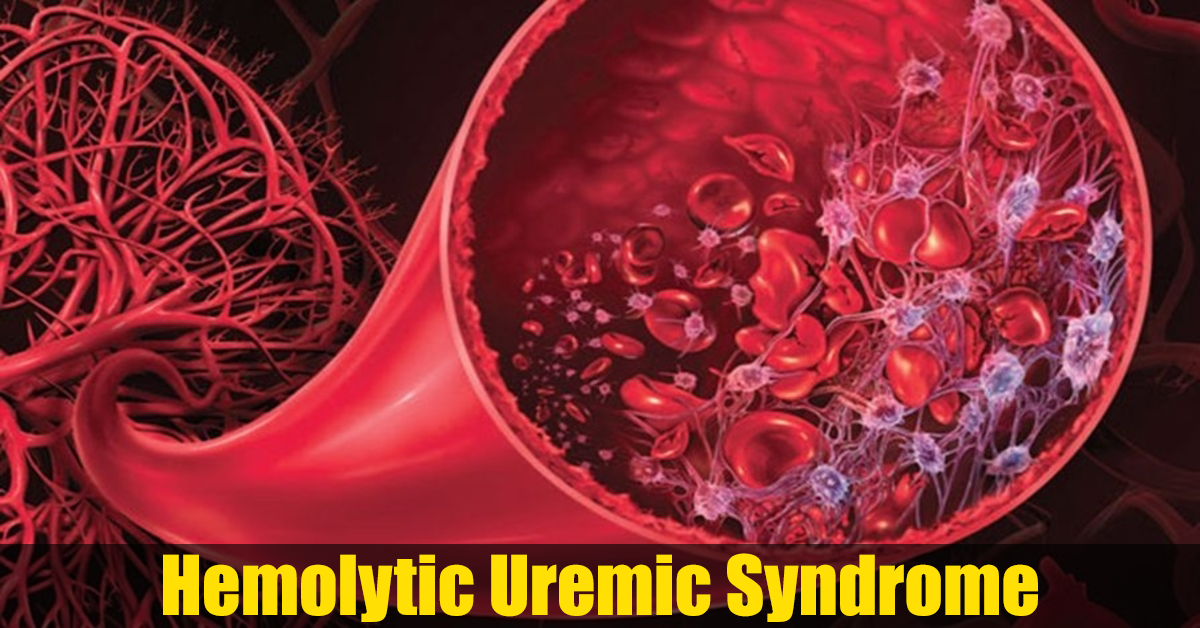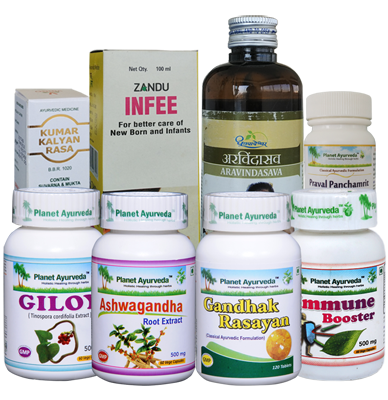Treatment of Hemolytic Uremic Syndrome (HUS) in Ayurveda
Overview
Hemolytic uremic syndrome(HUS) is a serious condition which is marked by an abnormal activity of destruction of the body’s red blood cells and, consequently, a low platelet count. The condition can put affected individuals at a potential risk of kidney failure because the filtering system of the kidneys can get clogged by the damaged red blood cells.Hemolytic uremic syndrome (HUS) is, therefore, a condition which affects two body systems the blood stream and the kidneys. Besides leading to life-threatening kidney failure, the condition can also cause some other serious health complications, including heart problems, stroke, coma, high blood pressure, and intestinal disorders like inflammatory colitis.

Hemolytic uremic syndrome (HUS) can affect both children and adults. The condition is basically of two types: Typical and Atypical. The main trigger for Typical HUS is a diarrheal infection which is usually caused by a particular strain of toxin-producing E. coli bacteria found in the intestines E.coli OH157:H7. However, Atypical HUS is not linked to any digestive tract infection, and has a comparatively less favorable outcome.Apart from the mentioned E.coli strain, some of the other causes of Hemolytic uremic syndrome includes the use of certain medications – like quinine sulphate, certain chemotherapy and immunosuppressant medications, and anti-platelet medications as well as HIV/AIDS or an infection with the pneumococcal bacteria. In some rare cases, the condition may get triggered in females due to pregnancy.
Symptoms of Hemolytic Uremic Syndrome
Some of the common symptoms associated with the occurrence of Hemolytic uremic syndrome are :-
- Abdominal pain
- Vomiting
- Bloody diarrhoea
- Blood in the urine or decreased urination
- Bleeding from the nose and mouth
- Minor, unexplained bruises
- Fatigue and irritability
- Paleness (pallor) or weakness
- Seizures or confusion
- High blood pressure
- Swelling of the face, hands, feet or the whole body.
In addition to these symptoms, some other indications of Hemolytic uremic syndrome include: Dehydration, Anemia (resulting from abnormal destruction of red blood cells and low platelet counts), and Uremia (inability of the kidneys to remove waste products from the body).
Treatment of Hemolytic Uremic Syndrome
Timely and appropriate treatment is required in Hemolytic uremic syndrome, so that the patients especially children — can recover fully from the condition. The treatments which can alleviate the symptoms of the condition and prevent any further complications include: Red blood cell transfusions, Platelet transfusions, Fluid replacement, Plasma exchange, and Kidney dialysis.
For the management of Hemolytic uremic syndrome in a safe and natural manner, some excellent herbal products are available for renowned herbal manufacturing company, Planet Ayurveda. The products are prepared from pure herbs, under the guidance of expert Ayurveda practitioners.
Planet Ayurveda’s herbal products for managing Hemolytic uremic syndrome are:
1. Green Essential Capsules
A number of useful herbal ingredients are combined for the preparation of these capsules. The ingredients include: Amalaki (Emblica officinalis), Spirulina (Spirulina platensis), Green tea (Camellia sinensis), wheat grass (Triticulum aestivum), and grape seed (Vitis vinifera).
The use of the capsules is beneficial in Hemolytic uremic syndrome because of their ability to provide nourishment to the brain cells, enhance brain functioning, boost immunity, help the body fight against free radicals, and manage skin disorders and other conditions.
Dosage :- 1-2 capsules with plain water, two times a day, after meals.


2. Punarnava Mandoor Tablets
The preparation of these tablets involves a combination of some potent herbs including Punarnava (Boerhaavia diffusa), Mandoor Bhasma (Ferric oxide calx), Amalaki (Emblica officinalis), Haritaki (Terminalia chebula), Haridra (Curcuma longa), Shunti (Zingiber officinale), Maricha (Piper nigrum), Pippali (Piper longum), Chavya (Piper chaba), Chitrak Mool (Plumbago zeylanica), and Vidanga (Embelia ribes).
Patients of Hemolytic uremic syndrome can benefit from the use of the tablets because they are helpful in eliminating toxins from the body, improving the quality of blood, increasing blood count, controlling cholesterol levels, and manages several disorders.
Dosage:- 1-2 capsules with plain water, two times a day, before meals.
3. Nephralka Capsules
Pure and standardized extracts of a number of herbs are used for preparing these capsules. The herbs include: Bhumi Amla (Phyllanthus niruri), Mooli satva (Raphanus sativus), Revandchini (Rheum emodi), Kalmegh (Andrographis paniculata), and Punarnava (Boerhaavia diffusa).
The capsules can be useful for Hemolytic uremic syndrome patients because they can maintain healthy kidneys, help absorb fluid in digestive system, eliminates extra fluid from kidneys, manage constipation and diarrhoea linked to renal disorders, manage digestive disorders, treat urine infections, control blood pressure, rejuvenate immune system, and pacify aggravated Pitta and Kaphs doshas.
Dosage:-1-2 capsules with plain water, two times a day, after meals.
4. G-Plat Capsules
The capsules are prepared from some extremely useful herbal components which have the capability to manage a low platelet count, particularly if it is caused by faulty bone marrow function or bone marrow depression.
The patients of Hemolytic uremic syndrome can benefit from the use of these capsules which can be helpful in managing several conditions related to low platelet count. These conditions may include spleen disorders, different kinds of cancers, leukaemia, lymphomas, AIDS, and other disorders. In addition, the capsules also have the ability to manage gastro-intestinal disease, treat skin ailments, boost immune levels, treat ulcers, and alleviate stress and anxiety.
Dosage:- 1-2 capsules, two times a day.
5. Rencure Formula Capsules
The capsules are prepared from a combination of herbs including Punarnava (Boerhaavia diffusa), Palaash (Butea monosperma), Gokshur (Tribulus terrestris), and Kaasni (Cichorium intybus).
Hemolytic uremic syndrome can be managed with the help of these capsules which can treat kidney-related problems, eliminate accumulated toxins from the body, rejuvenate dying cells, ensure healthy flow of urine, and control the body’s vitiated Pitta and Kapha’ doshas.
Dosage:-2 capsules with plain water, two times a day, after meals.
6. Pitta Balance Capsules
For preparing these capsules, several natural ingredients are used, including Praval Pishti (Coral Calcium), Akik Pishti (Agate Calcium), Mukta Pishti (Pearl Calcium), Jawar Mohra Pishti (an Ayurvedic Calcium compound), Kamdhudha Ras (an Ayurvedic Calcium compound), and Giloy satva (extract of Tinospora cordifolia).
People affected by Hemolytic uremic syndrome can benefit from the use of the capsules which can promote the functioning of the immune system, support the digestive system, purify the blood, control blood pressure, balance the body’s Pitta dosha, and cure ulcers, acidity, and several other conditions.
Dosage:-1-2 capsules with plain water, once or twice a day, after meals.
Conclusion:-
Planet Ayurveda’s herbal products for the management of Hemolytic uremic syndrome are 100% natural formulations, which are completely vegetarian, and do not contain any chemicals, starch, additives, yeast, artificial colors, binders, fillers or preservatives.







